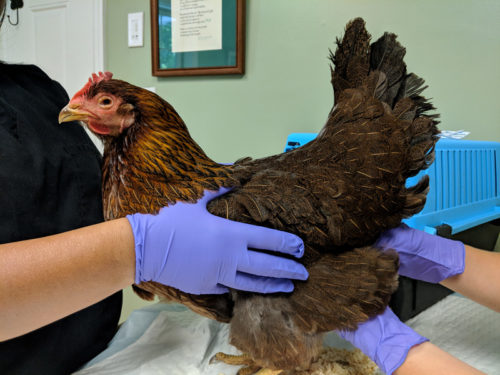Duck Eggs vs. Chicken Eggs: 8 reasons to consider ducks.
Back to blog

Ducks may be the ticket if you want to produce eggs. I wouldn't echo Doris's sentiments above, but you'd be wise to consider the benefits of adding ducks to your flock! Ducks are a favorite backyard layer. Here are 8 reasons why:
1. Ducks are cheap!
Yes, they are! Ducks can be a little pricier to start, to be sure, because ducklings eat like, well... pigs. This is just in the early days, though, to maintain their exceptionally rapid growth.
In the long run, ducks eat less feed than chickens. This is because they're excellent foragers and — you guessed it — foraging is free!

Ducks eat much more bugs than chickens, including slugs, tomato hornworms, and the dreaded Japanese beetle. Ducks will even eagerly chase down dragonflies and other small pterodactyls. Far from squeamish, ducks will happily dig under decaying matter to snarf anything that moves.
They'll also forage on the soft grass and tender weeds through the summer, supplementing their grain intake more heavily than chickens.
2. Duck eggs are better!
Sorry, this is just a fact. Ask any pastry chef if you don't believe me! They'll tell you that duck eggs are essential if you want the creamiest custards, softest bread, and moistest, fluffiest cakes.
This is because duck eggs are different: they contain less water and have higher fat and protein levels.
While some folks swear, they can taste the difference when eaten solo, I find little discernible difference in the taste buds between chicken and duck eggs.

Duck eggs are the best choice for gluten-free cooking since the albumen helps bind the gluten-free ingredients and improves the final texture considerably, creating moister loaves of bread, cakes, and cookies.
Duck Egg Cooking Tip: When substituting in a recipe, 2 duck eggs equates to 3 large chicken eggs - since duck eggs are usually larger than chicken eggs.
3. Ducks are more reliable egg layers
You heard that right! Your best-layer duck breeds, like the Golden 300 Hybrid Layer, White Layer Duck, and Khaki Campbell, will lay nearly as many eggs as your most productive chicken breeds: up to 290 eggs per year!
They aren't fair-weather layers: ducks tend to lay exceptionally well in winter.

And our quacking 'quaintances will reliably lay eggs yearly, whereas chickens will produce fewer eggs every year after their second laying season.
Not quite as important as egg count, but helpful nonetheless: ducks are generally considerate enough to lay their eggs by 10 am. This means you can let them out to roam by late morning and not have to worry about going on an egg hunt for breakfast the following day!
4. Ducks go where you tell them!
Have you ever seen the hen that can climb a wall? Trying to contain chickens can (and does) create headaches. They fly, roost, and poop where you don't want them, and they're pretty sure the grass is greener on the other side of the fence.

We love them nonetheless, but ducks, by contrast, are easily contained in a 3-foot-high enclosure. They don't mind being herded, so you can encourage them to check out new foraging areas of your choice each day.
Even if you leave your fence gate open, you likely have nothing to fear: ducks think long and hard about going through a typically closed gate.
5. Ducks don't eat your veggie garden
Chickens are famous for decimating any veggie garden they're lucky (or clever enough) to enter. They'll dig up the roots of your plants and shred every last thing they can get their beaks on.
On the other hand, Darling ducks will merely dibble and dabble under the vegetation in their search for bugs, slugs, and anything moving — but they leave most vegetables alone.

Of course, their big feet can be a problem with delicate seedlings, and they do love munching on lettuce, but for the most part, they spend their time viciously and incessantly hunting things with wings.
And we'd be remiss if we didn't mention the wealth of naturally-diluted fertilizer your ducks will leave over the surface of the entire garden. Bonus!
6. They DO eat bugs like champs!
Gardeners and Horticulturists commonly use ducks for pest control in gardens, orchards, and vineyards. They love to eat slugs, snails, grubs, and insects, including mosquito pupae, Japanese beetle larvae, potato beetles, and grasshoppers.
Ducks love the muddy ground and will burrow their bills in the muddy water, which is good for clearing mosquito larvae. Any chicken owner knows that their chicken flock would prefer to sit inside the coop on a rainy day rather than play in mud puddles!
7. Those with egg allergies can often eat duck eggs!
Many people who cannot eat chicken eggs can eat duck eggs! Why? The proteins are different, so you may be allergic to one type of egg and not the other. This opens up a world of food to those individuals that cannot typically eat foods containing chicken eggs.

8. Ducks are hardier than chickens
Ducks may be right for you if you don't want to make frequent vet visits! Mites and lice are far less apt to infest ducks than chickens. Chickens are likely to fall prey to a whole host of respiratory ailments, too, where that's unusual in ducks who are cared for properly. And when birds are sick, you know what happens: they don't lay!

All this adds up to one thing: if you want lots of nutritious eggs, you would be wise to consider adding ducks to the flock.
Recommended Reading List:
Which goose and duck breeds are right for your farm?



